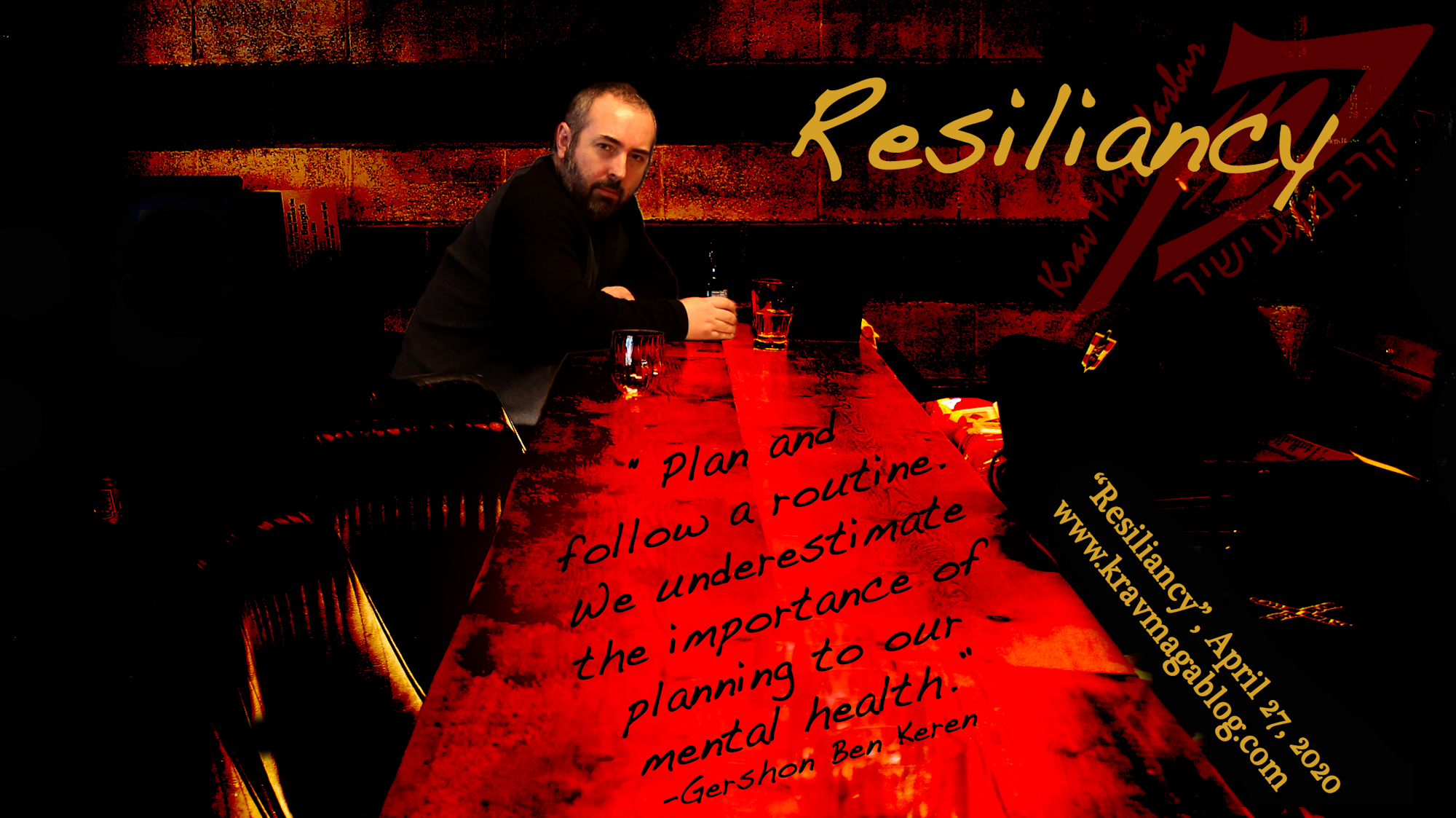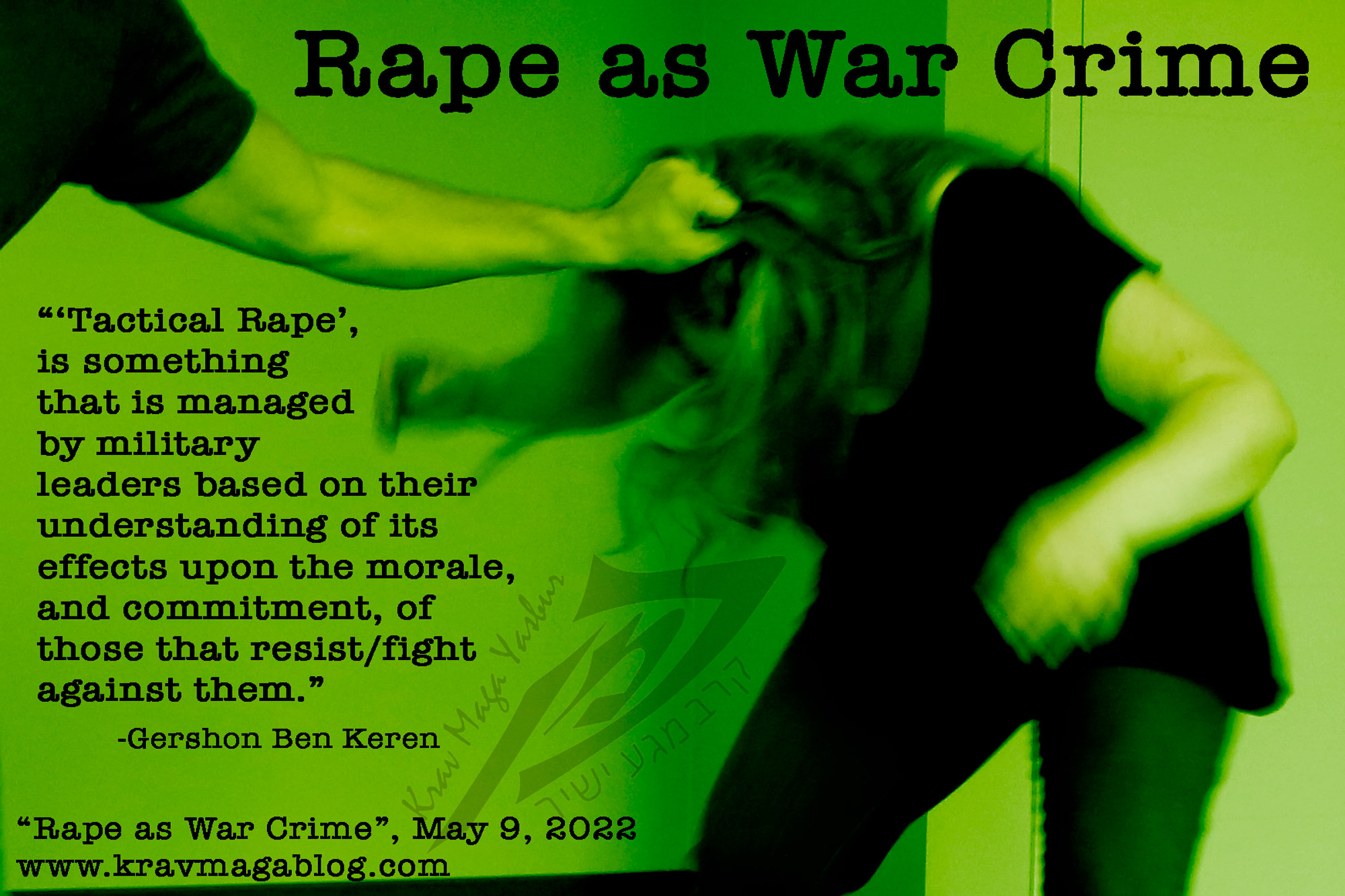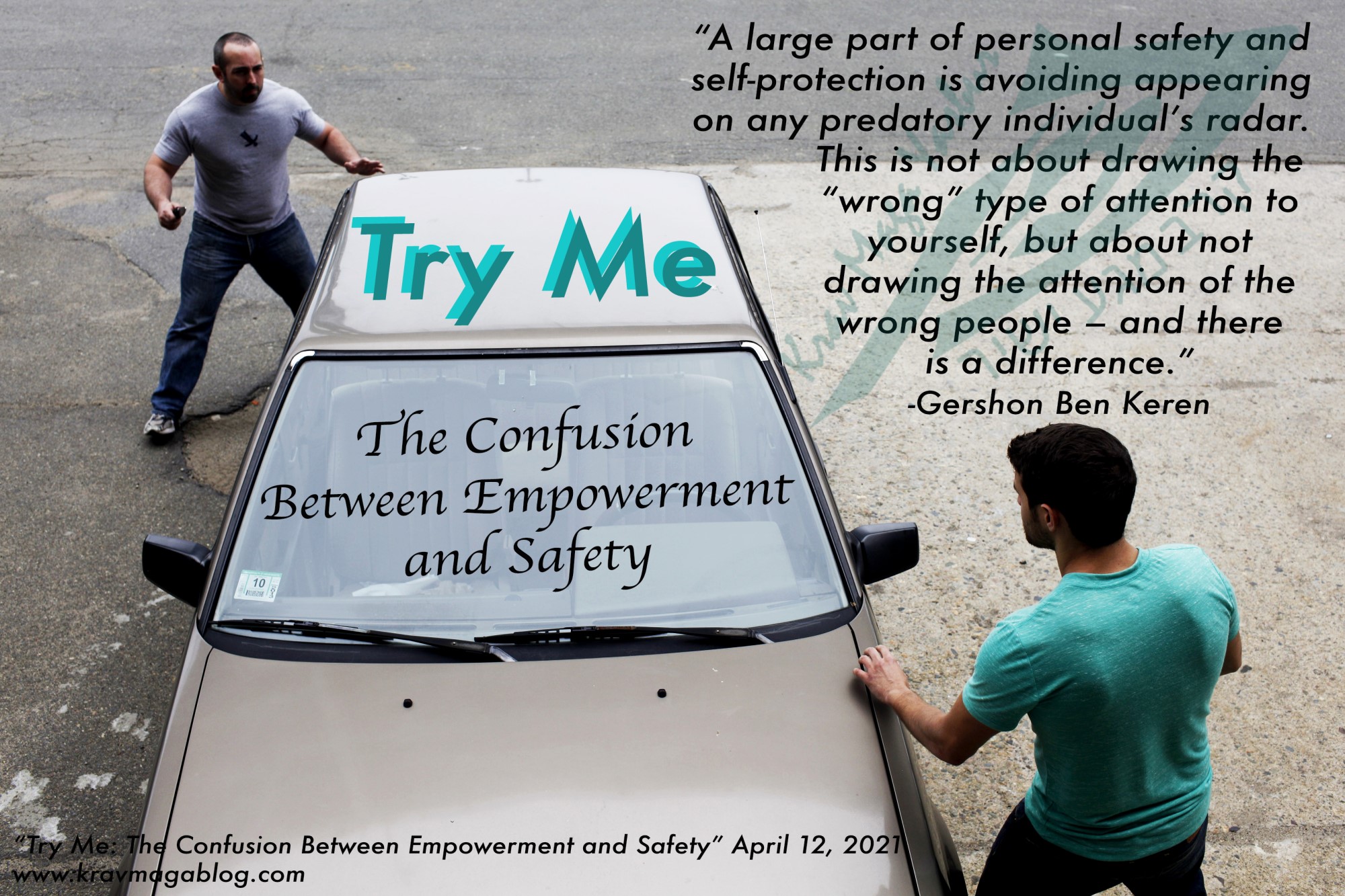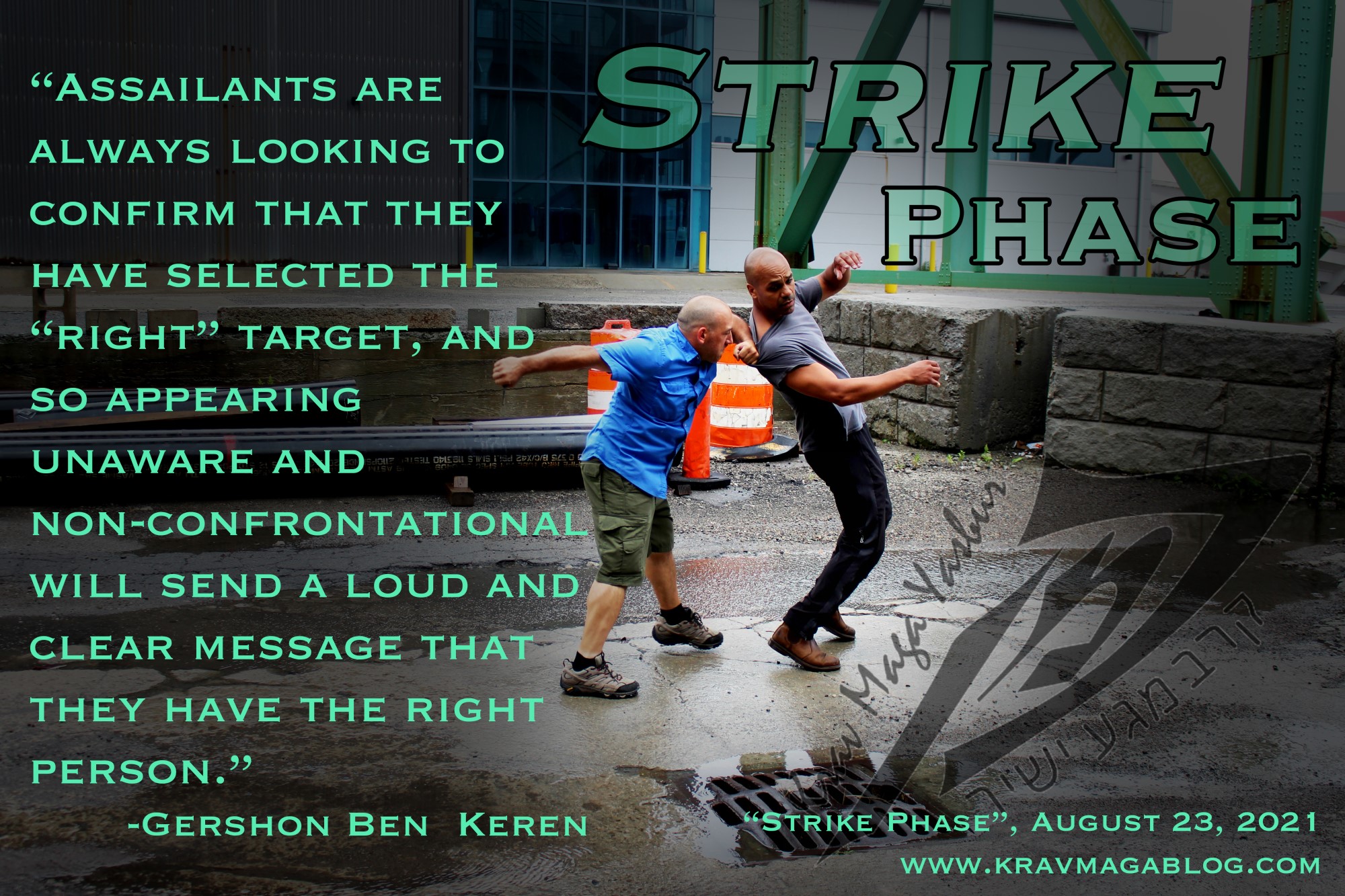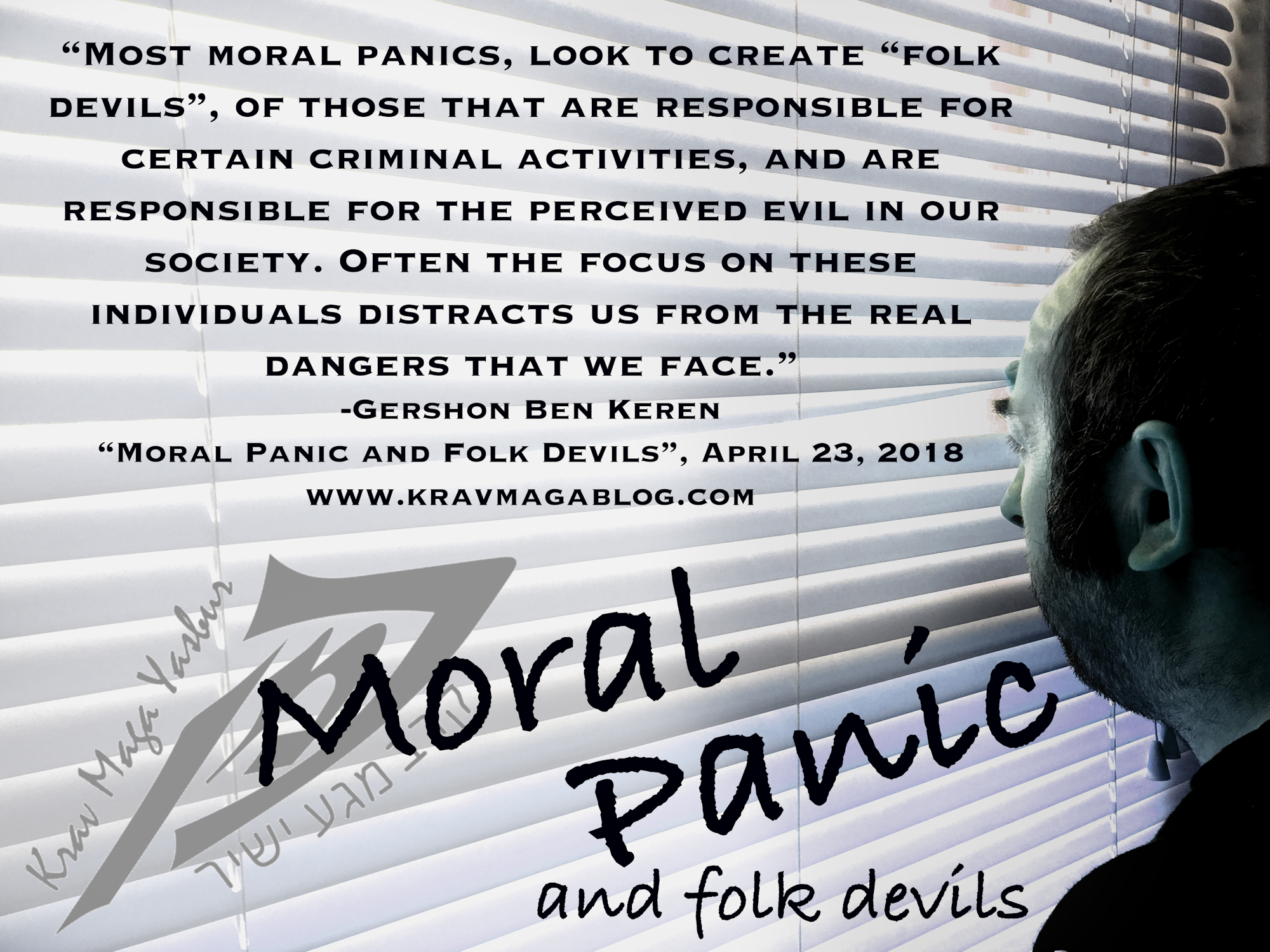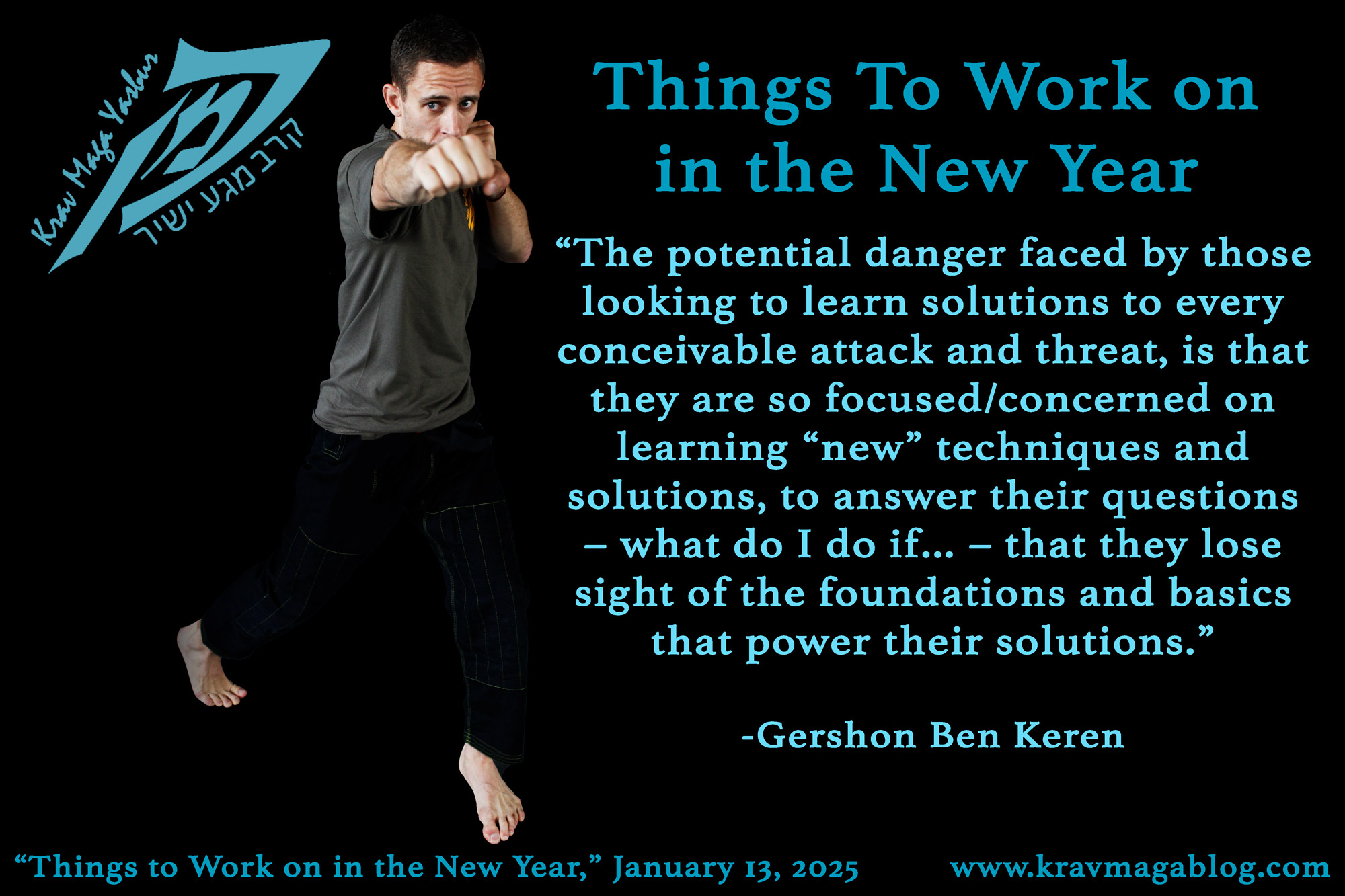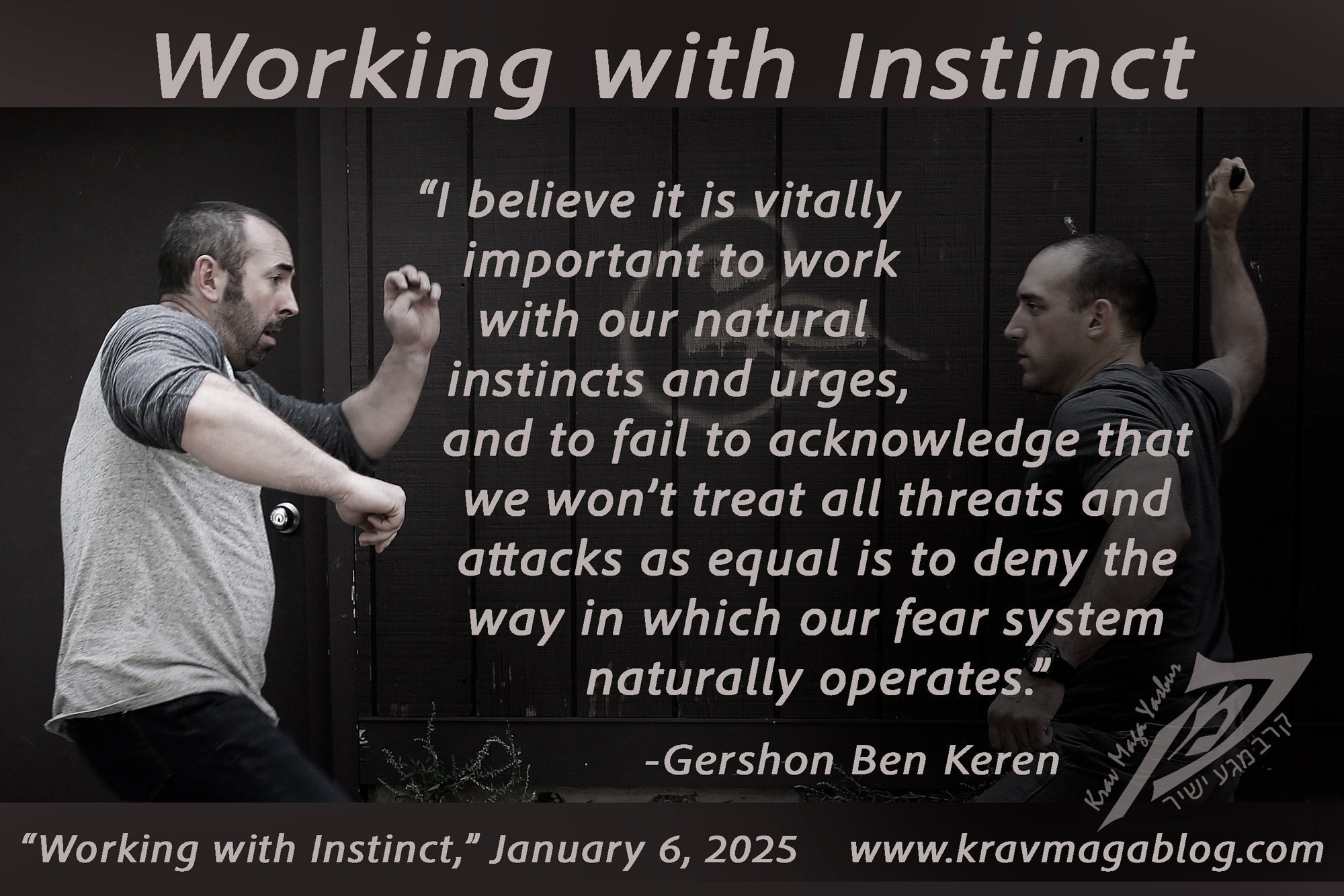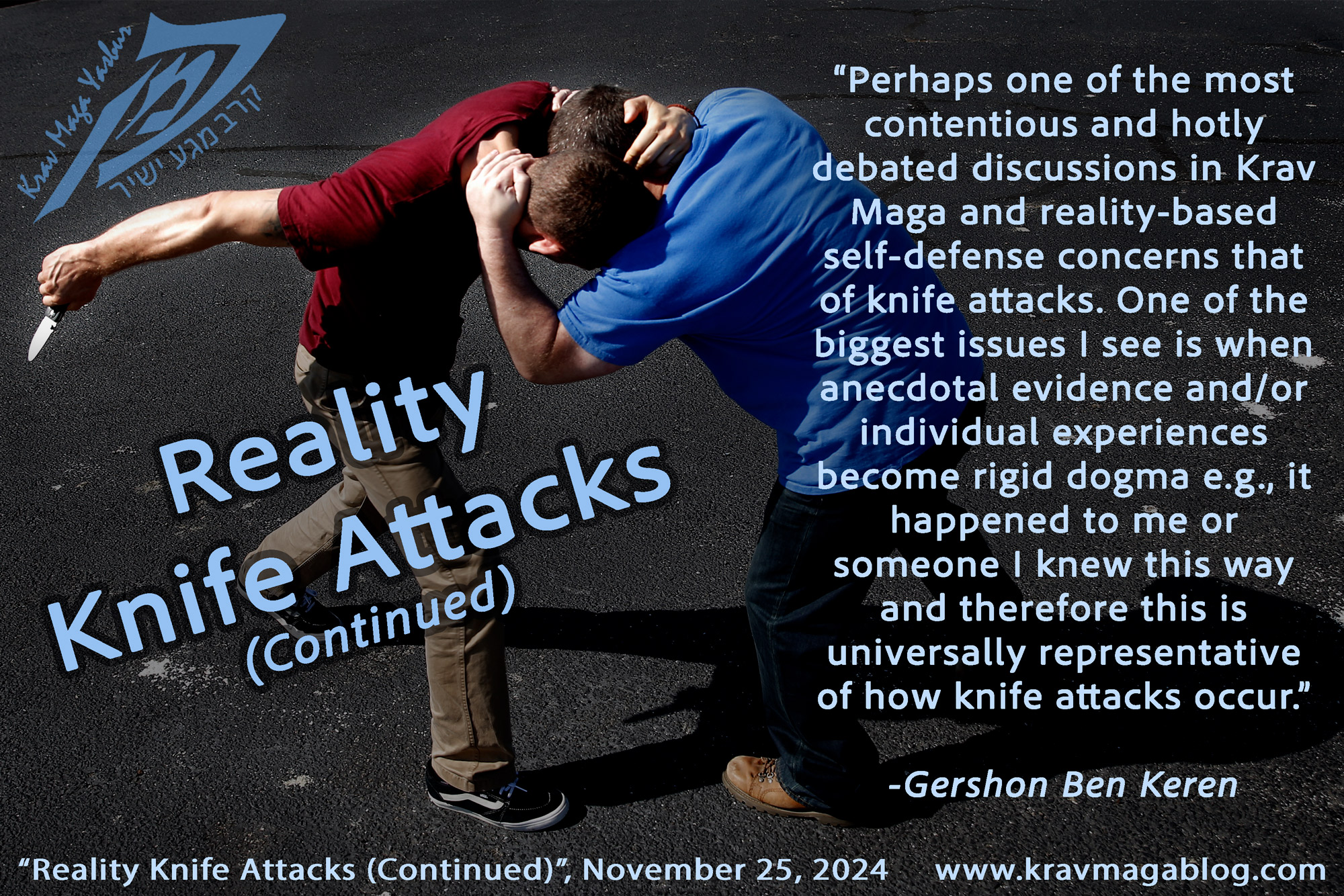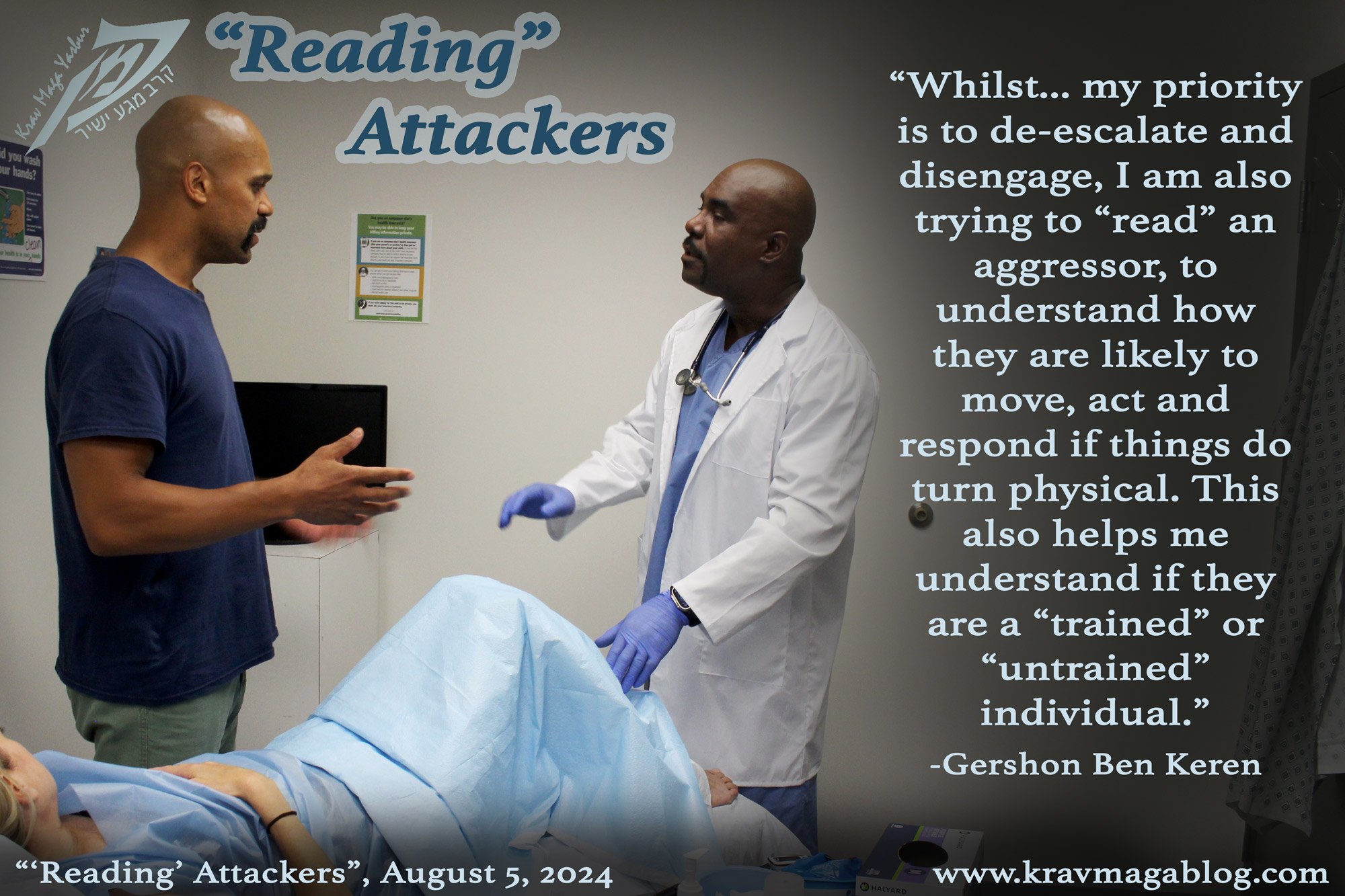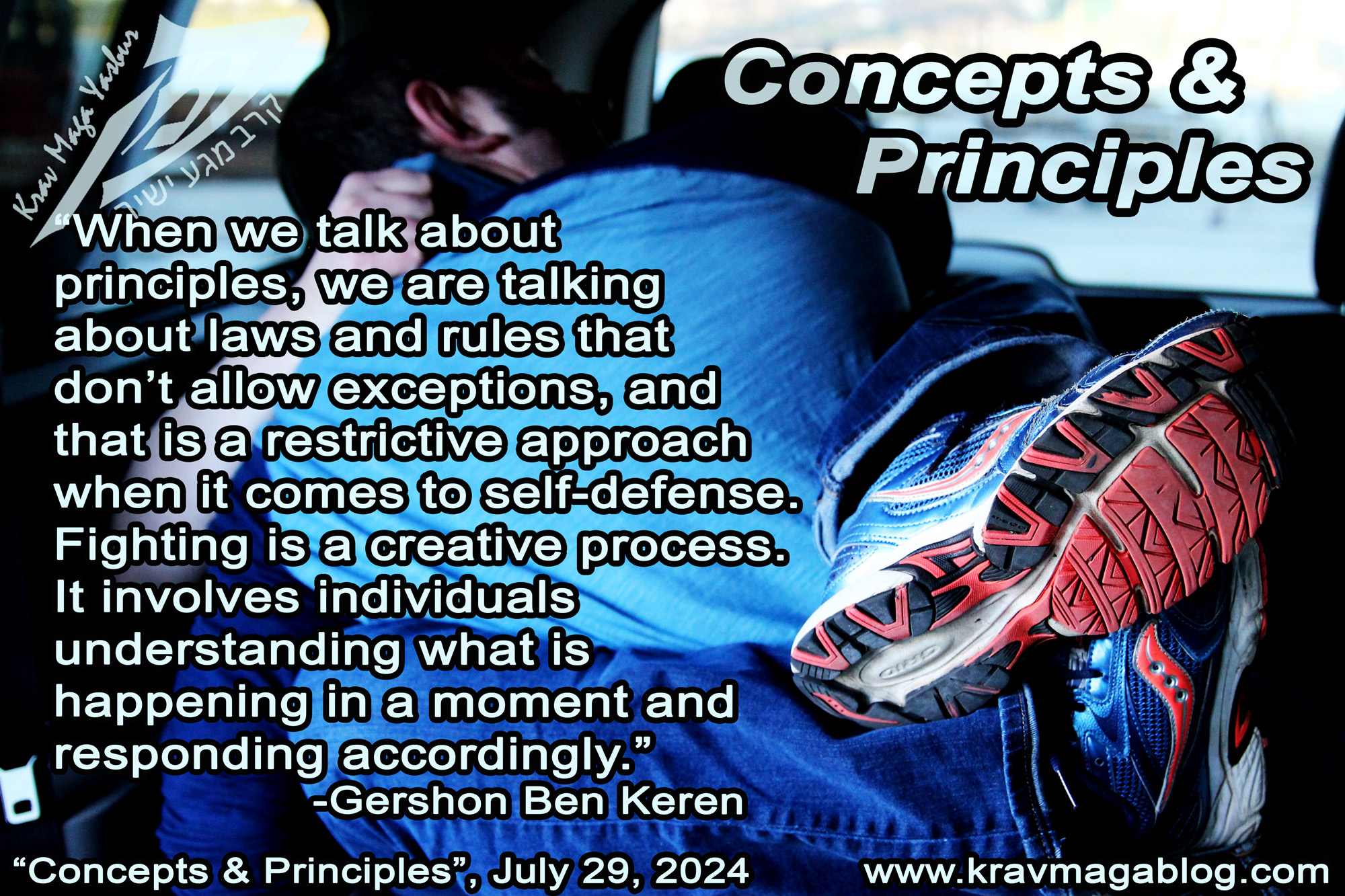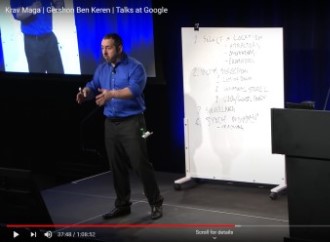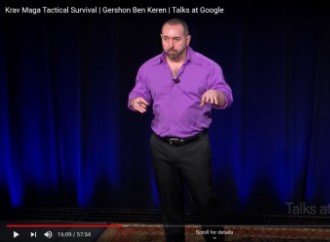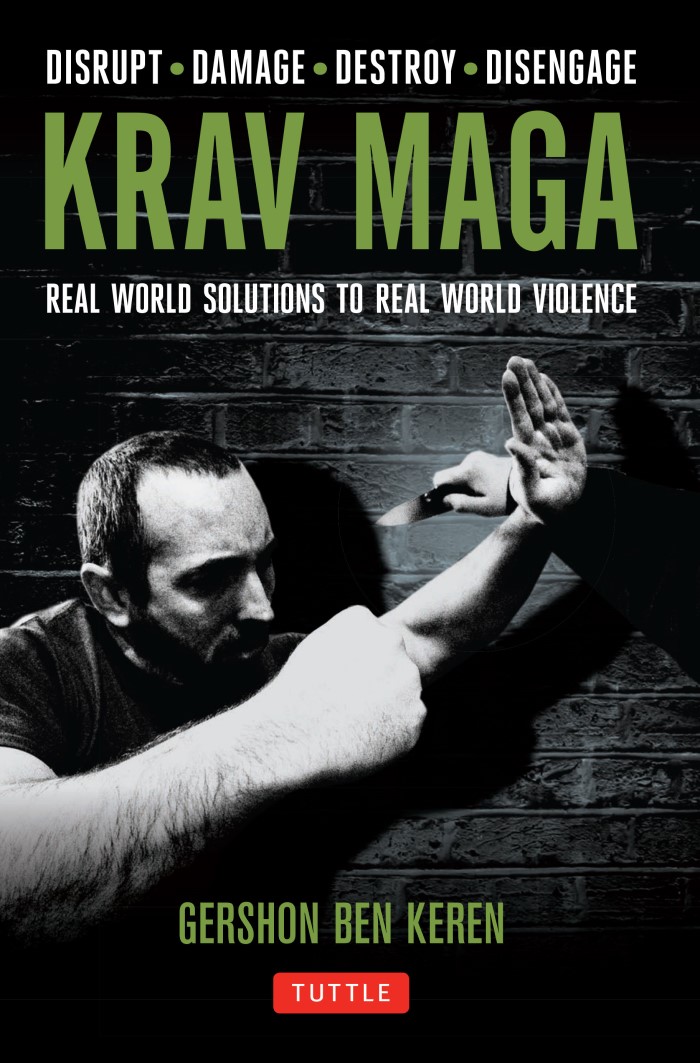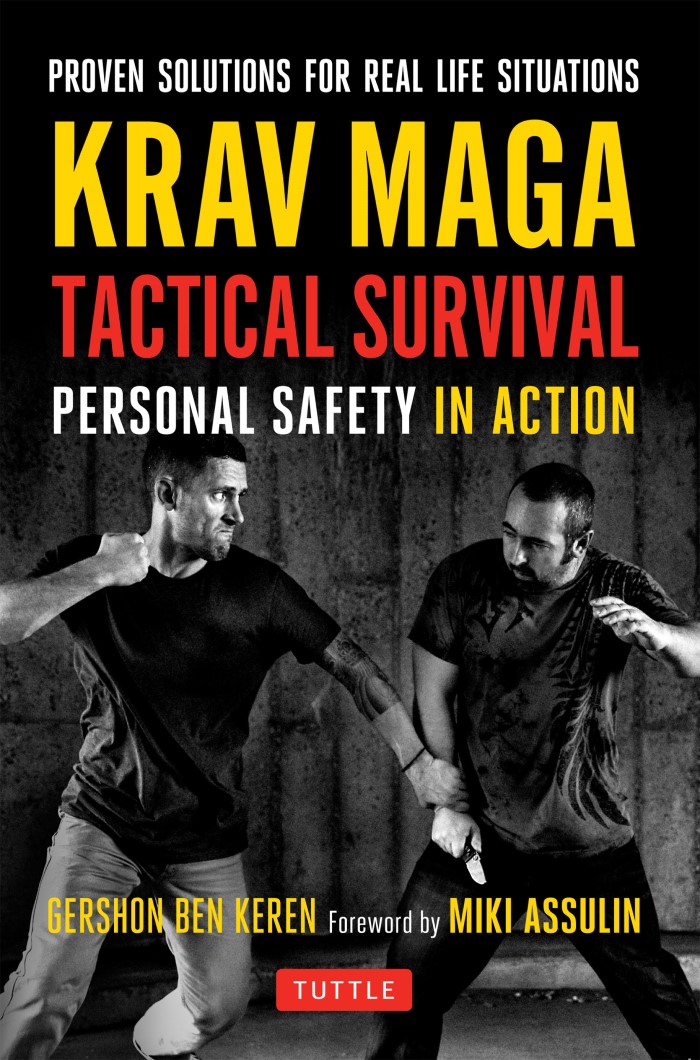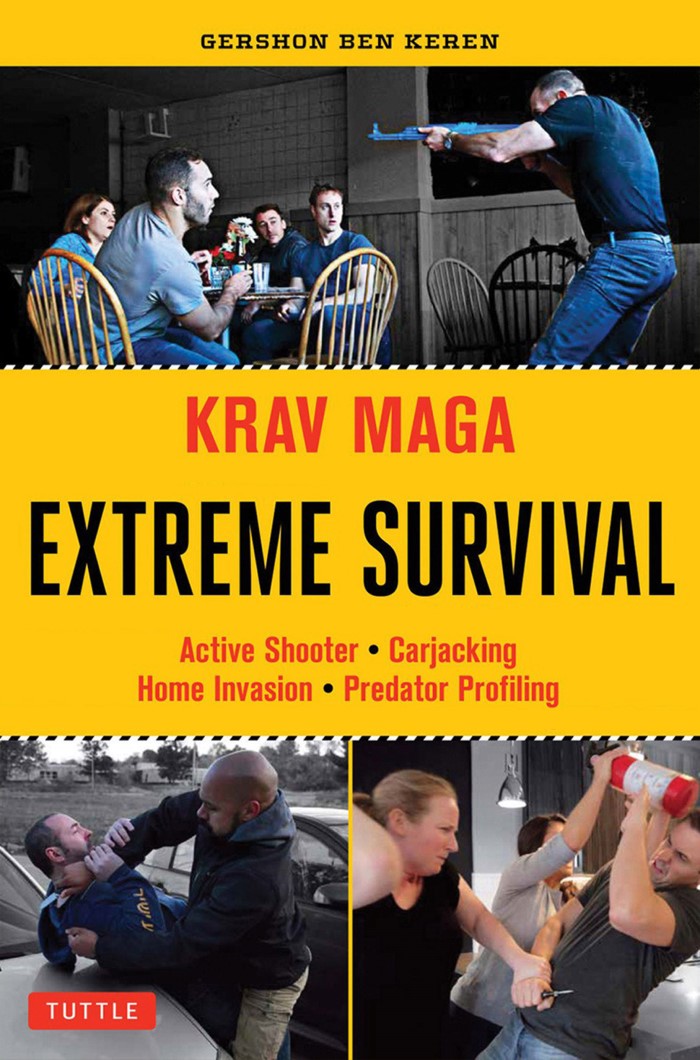The Right Balance of Training, is an article written by Gershon Ben Keren, a 5th Degree Black Belt in Krav Maga, who teaches Krav Maga in Boston, MA. He has also authored three Amazon best-Selling Books on Krav Maga.
Japanese martial arts, such as Karate break their training down into different components e.g. Kihon – the practice of the basic, Randori – free practice, Hojo Undo – Supplemental Training (Weights, Resistance Work, Makiwara Practice etc), Shiai – competition/free fighting. They recognize that for a person to improve and develop they must train and practice in many different ways. I was training two kids on Saturday who had hand-eye co-ordination issues, so we had to do specific drills to start to improve that before we were able to really work on the form of blocking and striking. We all have areas of weakness and deficiency and we all need to look at the types of training we do in order to address them. If is it simply a case of getting gassed out in a stress test the area of development is easy to spot. If it’s constantly jamming up with other people when doing drills such as stepping on toes it’s a control of range issue.
Training is not a competitive thing it exists to make you competitive. This is easy to forget when taking part in drills and light sparring. The idea is to practice and hone skills. It’s one reason we do a lot of lower intensity work that tries to develop effective movement. Does everything we do replicate and train all the components of a real street fight? Absolutely not, however people dismiss the value of different systems and arts because they miss the point on this. Why are Judoka’s such good grapplers, Tae Kwon Do practitioners such good kickers, BJJ stylists so good on the ground? Simply because these arts create an environment that promotes the development of these particular skills. When we drill we do this in exactly the same way. Sometimes we isolate everything to train ground, sometimes we isolate everything to exclude knife. On the street I will bite, rip, gouge and tear but if I brought this into grappling training on the mats no techniques would ever be learnt and no skills developed, plus nobody would ever want to train with me or they would train with me in an apprehensive manner. Neither of which would help me develop.
There is the need to train in situations where time and distance don’t exist, where a person’s heart is pumping and the adrenaline is flowing. There are times to move away from the comfort of the mats and change the environment e.g. this was the point of Saturdays outdoor Fall training and the beach training we put on over summer. There’s the time to mix all of this together. This is what I would refer to as “Shiai” in the Japanese Martial Arts; the time when the idea of playing/randori to develop skills is put aside and those skills are put to the test. This should still be controlled and safe but the situations that are set up are not there so much to train as to test. It is then through this testing that weaknesses can be detected and everybody can return to the mats to drill and play and further develop the skills they need.
Some people are able to see what they need to develop through day-to-day training (and/or understand that they don’t yet possess the skills to test), others require themselves to be tested in more extreme ways or may believe that they possess the necessary skills and ability to be tested, or in Japanese terms to compete. There are many ways to test yourself e.g. a few years back I went and competed in the Dennis Hisardut Championship in Israel – a bare knuckle, knockdown style of event. Not reality but a very emotional and stressful situation e.g. I’d never competed under their rules, I hadn’t competed in any championship for years and was in a foreign country trying to understand commands in Hebrew. There are many ways to introduce the components of reality into a situation without it having to replicate reality.
If people are interested in high stress CQB style training please contact me and I will try to arrange a session on the calendar before the end of the year. It will be hard, it will be painful and you will be taken out of your comfort zone,
0 COMMENTS
